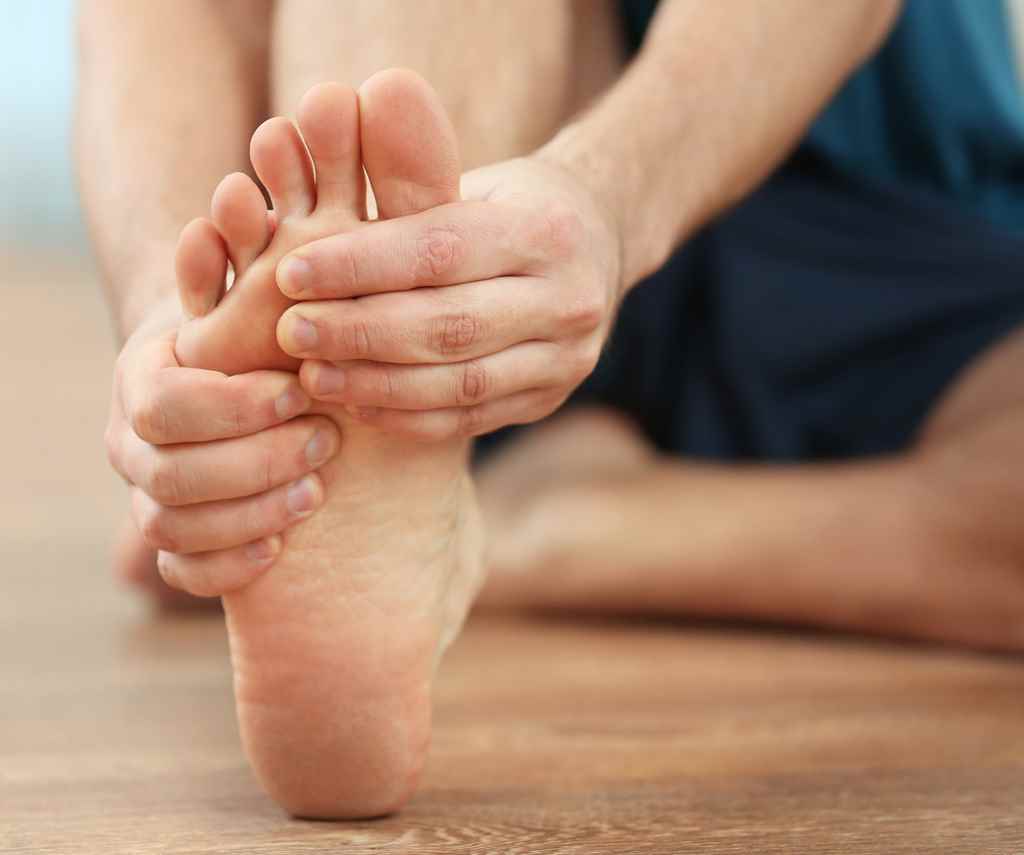How To Treat Insect Bites At Home?
There are several homemade remedies for insect bites which can help you relieve the symptoms. Here are a few
1. Onion

What You Will Need
- One half of an onion
What To Do
- Cut a raw onion in half.
- Rub the onion directly on the sting or insect bite.
How Often To Do
Rub the onion on your skin several times a day or until you feel relieved.
Why This Works
Onion has been known and used for its medicinal properties since ancient times. Onion can also be used as a natural treatment for insect bites. Onion has anti-inflammatory properties which help reduce the swelling and redness and soothes the skin. It also has antibacterial and antimicrobial properties which prevent infections from the bite.
Also Read : Top 10 Effective Home Remedies For Mosquito Bites
2. Apple Cider Vinegar
What You Will Need
- Few drops of apple cider vinegar (ACV)
- Cotton balls or pads
What To Do
- Take some apple cider vinegar on a cotton ball.
- Gently apply it to the affected area.
Note: Use diluted ACV to prevent any risk of skin irritation. Do not use this if you have sensitive skin.
How Often To Do
Apply ACV 2 to 3 times a day or until you feel relieved.
Why This Works
Apple cider vinegar or ACV has been considered a miracle juice by many. It is known for its healing properties. Apple cider vinegar can reduce itchiness, redness and swelling on the skin.
3. Ice Pack

What You Will Need
- 5 - 6 ice cubes
- Ice bag or a Ziploc bag
What To Do
- Add about 5 to 6 ice cubes to an ice bag or a ziploc bag and make a cold compress.
- Apply the ice pack on the affected area for 5 minutes.
How Often To Do
Do this twice a day with a minimum 30 minutes gap between the two applications.
Why This Works
This is an easy and effective insect bite treatment at home. Ice soothes the skin and gives you an instant relief. It also reduces the redness and inflammation.
4. Tea Tree Oil
What You Will Need
- 1 tsp. of pure coconut oil
- 3 – 4 drops tea tree essential oil
- Cotton ball
What To Do
- Add 3 to 4 drops of tea tree essential oil to 1 tsp. of pure coconut oil.
- Mix it well and apply it to the affected area with the help of a cotton ball.
How Often To Do
Apply this to the insect bite several times a day or until you feel relieved.
Why This Works
Tea tree oil has lots of amazing benefits. It has anti-inflammatory properties, antibacterial properties and antimicrobial properties. It can soothe irritated skin and heal it. It not only effective in healing insect bites but is also a natural insect repellent.
Why don't you check out Anveya Tea Tree Oil? It combats bacteria and various other infections that causes ill health for your skin, hair,nails and overall wellbeing.
ANVEYA AUSTRALIAN TEA TREE OIL, 100% PURE, 15ML
- Works on ACNE, SCARS & PIGMENTATION due to its antibacterial and anti-inflammatory properties
- Application in treating SKIN, NAIL & TOE INFECTIONS
- Great for HAIR. Fights against DANDRUFF with its antifungal properties
- Diffuse for fresh & CLEAN HOME
5. Cinnamon

What You Will Need
- 1 tsp. of powdered cinnamon
- Water as required
What To Do
- Add a few drops of water (or as required) to cinnamon and make a thick paste.
- Apply this to the affected area.
Note: Cinnamon allergy is one of the most common spice allergies. Always do a patch test before using it.
How Often To Do
Repeat this procedure 2 to 3 times or until you feel relieved.
Why This Works
Cinnamon (dalchini) is a natural insect bite relief. It has antibacterial, anti-inflammatory and analgesic properties which can reduce swelling and inflammation caused by the insect bite. It calms down the irritated skin and heals it. Cinnamon oil can also be used to repel insects.
Also Read : Cinnamon Essential Oil - Benefits, Precautions & more
6. Honey
What You Will Need
- A few drops of pure honey
- Cotton balls
What To Do
- Take a few drops of honey on a cotton ball.
- Gently apply it to the affected area.
How Often To Do
Continue applying honey for a few times during the day or until you feel relieved.
Why This Works
Honey is a well-known remedy for treating burns and other skin infections. It also has antibacterial and analgesic properties. Because of these properties honey can reduce redness and swelling and soothe irritated skin. It also prevents the bite from further infections and heals it.
7. Aloe Vera

What You Will Need
- Aloe vera leaf
- Spoon or knife to cut open and extract the gel
What To Do
- Cut the outer layer of the aloe leaf and scoop out the gel to a container.
- Refrigerate the fresh aloe vera gel for 10 minutes.
- Apply the gel to the affected area.
Useful Tips: If you cannot use or buy a fresh aloe leaf, you can also use store-bought pure aloe vera gel with no added ingredients.
How Often To Do
You can apply this to the affected area several times a day or until relieved.
Why This Works
Aloe vera is a well known healer. It also has anti-inflammatory properties and can be used to treat small wounds and burns. Aloe vera heals the insect bite and with its soothing properties it can also help reduce itchiness, redness and swelling on the skin.
8. Basil
What You Will Need
- 3-4 drops of basil essential oil
- 1 tsp. pure coconut oil
- Cotton ball
What To Do
- Add 3 to 4 drops of basil essential oil with 1 tsp. of pure coconut oil.
- Mix them well and apply to the affected area with the help of a cotton ball.
Useful Tip: You can also crush a few basil leaves and rub them on insect bites.
How Often to Do
Repeat this procedure until you feel relieved.
Why This Works
Basil contains camphor and thymol which are responsible for its antimicrobial properties. Basil is also a cooling agent. Basil reduces the swelling, redness and itchiness caused by the insect bite. It also prevents further infection.
9. Salt

What You Will Need
Ä¢ 2 tsp. of common salt ‚Ä¢ A few drops of water
What To Do
- Add a few drops of water to 2 tsp. of salt and make a paste.
- Apply the salt paste on the affected area.
How Often To Do
Apply this paste until you feel relieved.
Why This Works
Common salt has antimicrobial and antifungal properties. It prevents the insect bite from further infections. It also acts as a detoxifier and neutralizes the insect bite. It calms the irritated skin and reduces swelling and itchiness.
10. Eucalyptus (Nilgiri) oil
What You Will Need
- 4 drops of eucalyptus oil
- 1 tsp. of pure coconut oil
What To Do
- Add about 4 drops of eucalyptus (Nilgiri) oil to 1 tsp. of pure coconut oil.
- Mix them together and apply to the affected area.
How Often To Do
Apply this mixture several times a day or until you feel relieved.
Why This Works
Eucalyptus oil is an excellent insect repellent. It is also one of the best home remedy to treat insect bites. It has antibacterial, antiseptic, anti-spasmodic and anti-inflammatory properties. It is very effective in reduce swelling, redness and itchiness.
Also Read : Top 21 Uses and Benefits of Eucalyptus Essential Oil
Eucalyptus essential oil has been used for generations to cure respiratory ailments and wounds. It is great to massage oil, and its aroma helps with focus and tackling exhaustion. We recommend adding Anveya Eucalyptus Oil to your skin, hair and health care.
ANVEYA EUCALYPTUS OIL, 100% PURE, 15ML
- HAIR & SCALP Health
- Helps to overcome ACNE & BLEMISHES
- Use during COLD COUGH & SORE THROAT.
- Antispasmodic and relieves STRAINED MUSCLES.
Disclaimer: All the content on anveya.com/blogs is solely for information. It is not intended to be a substitute for professional medical advice, diagnosis or treatment. Always seek the advice of your physician or a qualified health care provider. The information, suggestion or remedies mentioned on this site are provided without warranty of any kind, whether express or implied.





